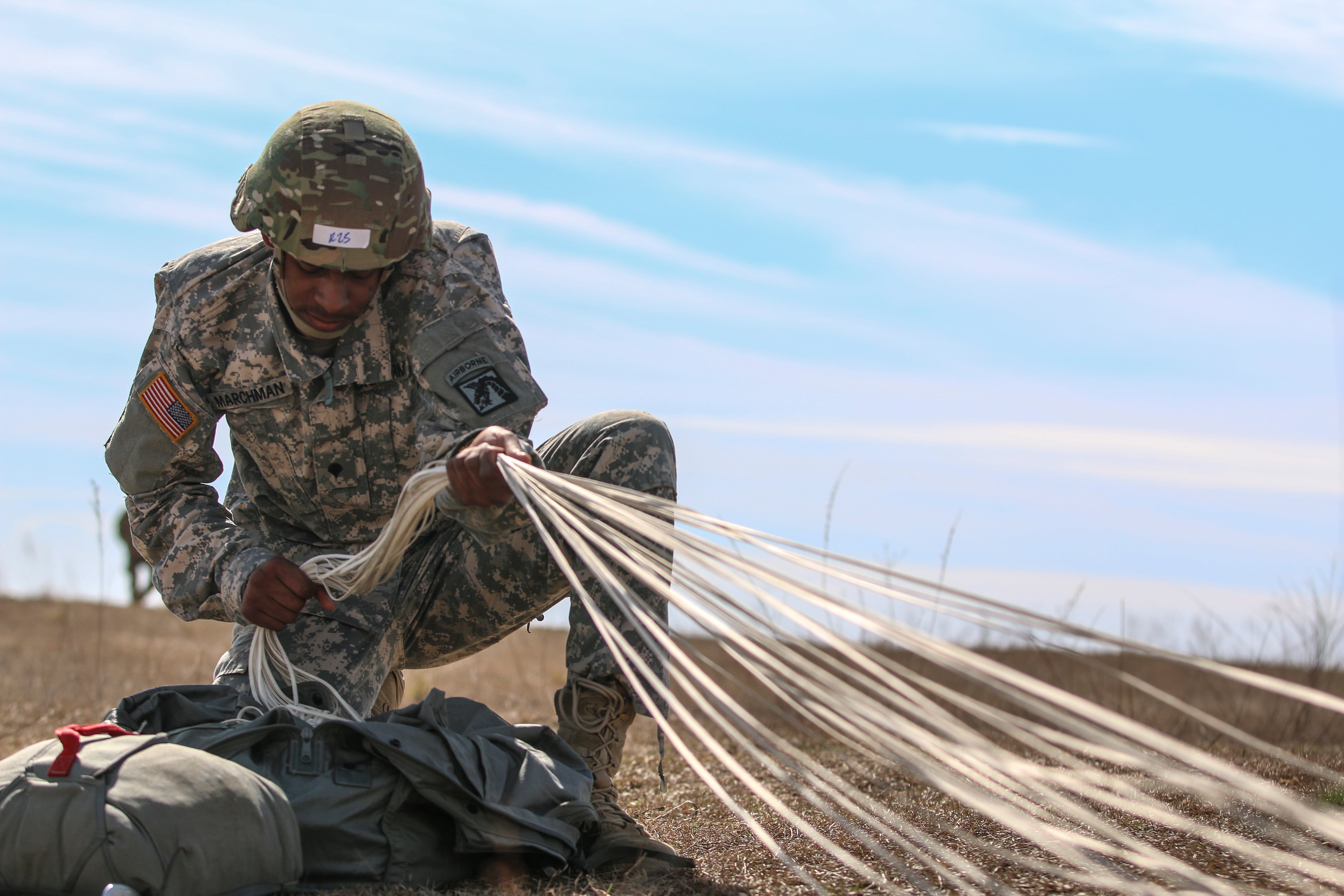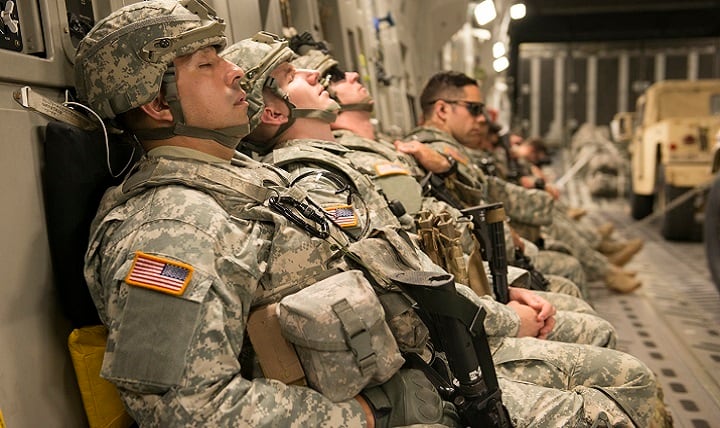New discoveries uncovered by Army-backed scientists may help future soldiers better combat the ever-present problem of sleep deprivation.
Researchers at the University of Rochester Medical Center in New York recently published a study that shows how a complex set of molecular and fluid dynamics that clear waste from the brain during sleep my be affected when soldiers sleep during the day, out of sync with their natural rhythms.
“This knowledge is crucial to developing future countermeasures that offset the deleterious effects of sleep deprivation and addresses future multi-domain military operation requirements for Soldiers to sustain performance over longer periods without the ability to rest,” said Dr. Frederick Gregory, program manager for the Army Research Office’s neurophysiology of cognition initiative.
And it goes way beyond the lab.
If soldiers today think that nighttime patrols and months-long deployments are straining their sleep, researchers see a host of challenges for future troops.
RELATED

The types of combat scenarios strategists envision in the not-too-distant future are especially concerning, such as multi-domain operations against peer adversaries such as Russia or China, A focus on such scenarios is embedded in many of the scientific approaches undertaken by the Army’s Combat Capabilities Development Command.
“People are probably going to be awake longer, with even more involved missions,” Gregory said.
Some of the new findings about sleep deprivation come from another discovery, made in 2012, of a glymphatic system, which is a network that parallels blood circulation in the brain. This system moves fluid through brain tissue mostly when a person is sleeping.
That movement cleanses the fluid of “toxic proteins and other waste,” according to an ARO release.
But the new research found that it’s not just whether a person is sleeping that determines how well the waste cleanup process is working, but when.
Daily cycles, known as circadian rhythms, are how the human body sets a kind of biological clock, shifting its functions to sync with daytime and nighttime.
Disrupting sleep — or trauma — can cause the glymphatic system to misfire, which allows toxic proteins to accumulate in the brain. That could increase the risk of degenerating neurological diseases such as Alzheimer’s, according to the statement.
The researchers found that when a person is awake, the glymphatic system diverts cerebrospinal fluid to lymph nodes in the neck, according to an Army statement.
The lymph nodes are way stations in immune system regulation, which suggests that cerebrospinal fluid may represent a “fluid clock” that helps wake up the body’s infection-fighting capabilities during the day.
Gregory and Dr. Matthew Munson, who specializes in fluid dynamics, as well as other researchers are looking at the glymphatic system to determine if there are controls or factors to influence how it operates. By cracking that code, they might eventually be able to minimize or even control the damaging conditions associated with lack of sleep.
When molecular, sleep and fluid dynamics researchers combine their efforts, interesting things happen.
“The short answer is, no, nobody’s done work on this,” Munson told Army Times. But by pairing his research in how fluids flow with the research done by experts in electro-chemical factors, they started finding pieces to a larger puzzle.
“People working on this are really in uncharted territory,” Munson said.
He takes principles that apply to water flowing around a rudder, or air around a plane’s wing, and then begins microscopic measurement of the tiny tubes that clear waste from the brain.
“We see these flow phenomenon, then see that clearance is enhanced and we can probe the system,” Munson said.
By those observations they can see what contributes to better waste clearance.
The research, done in rodents, enabled the scientists to see how the fluid moved inside the rodents' brains under different scenarios.
Gregory said they’re 18 months into the five-year project. Though they’ve already put the call out and done work with a variety of labs in the Army’s research sector, they hope to also partner with the Military Operational Medicine Research Program.
Some of the sleep factors could help with mechanisms that influence the severity of symptoms of traumatic brain injury or even post-traumatic stress disorder.
“The push now is to take that deep dive into fundamental mechanisms in an animal model,” Gregory said.
Research was supported by the Army, along with the Novo Nordisk and Lundbeck Foundations, the National Institute of Neurological Disorders and Stroke, and the National Institute of Aging.
Todd South has written about crime, courts, government and the military for multiple publications since 2004 and was named a 2014 Pulitzer finalist for a co-written project on witness intimidation. Todd is a Marine veteran of the Iraq War.









